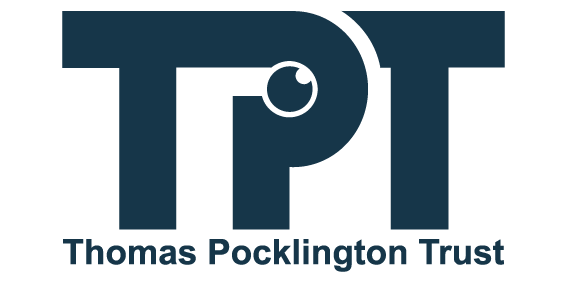Research from Thomas Pocklington Trust and Vision Impairment Centre for Teaching and Research (VICTAR) has revealed inconsistent support and poorly defined careers provision at school, college and local authority level across the country – suggesting a postcode lottery for young people with vision impairment (VI).
The research looked at young people’s experiences of Careers Education Information, Advice & Guidance (CEIAG) support in mainstream education in England since the national Connexions Service ended and the duty to provide careers education passed from Local Authorities to individual schools and Further Education (FE) colleges.
The findings revealed:
• The inconsistent offer of CEIAG across mainstream school and college settings in England is failing young people and leaving significant numbers of VI children and young people (CYP) in a vulnerable position without the necessary information, guidance and experiences to make informed decisions for their future.
• Disparities in specialist support is determined by school/college settings, in which local authority they are situated and whether they have an Education Health and Care Plan (EHCP) or not.
• The majority of VI Children Young People and Families (CYPF) surveyed reported had a negative or at best neutral experience of CEIAG support in mainstream school/college settings across England.
• A shortage of impartial, professional VI specialist careers education advice and guidance since the end of the national Connexions service in 2011.
• A lack of work placement and experience opportunities for some VI CYP with schools, in particular, withdrawing support for such activity and/or leaving it to VI CYPF to organise themselves.
• Instances of disjointed and uncoordinated input from key professionals such as careers advisers, QTVIs, and SENCOs with services not always communicating and joining up to provide support.
• A shortfall in robust transition planning for those with Education, Health and Care Plans (EHCP) increasing the chances of them becoming not in education, employment or training (NEET).
• Some positive experience of career support in school and college, which provide some examples of good practice to build upon.
CEIAG Research Overview report (DOCX, 48 KB)
CEIAG Research Report (DOCX, 131 KB)
Research methodology
The research results combined an online survey of young people aged 13-25 who are currently receiving or have received CEIAG in the last eight years and a series of focus groups with Qualified Teachers of Children and Young People with Vision Impairment (QTVIs). The survey received responses from every government region in England and every year group from year 7 -13 as well as those in Higher Education (HE) or recently graduated. Thank you to everyone who participated in this important piece of work.





